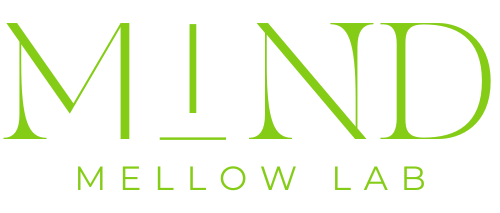Learning how to program has never been so easily accessed or flexible. For all the aspiring careers in technology, automation of tasks in work, or someone simply wanting to take on something new, online programming courses represent a solution that fits this mode of living. The best online platforms and resources, easy, interactive, and accessible, will be enumerated in the following:
1. Why Learn Programming?
Coding is one of the most sought-after skills in virtually every industry, from the tech world to finance healthcare, and entertainment industries. The ability to code allows you to open so many doors: building your own applications, understanding data, automation of workflows, and solving everyday problems. Plus, coding hones problem-solving skills, creativity, and logical thinking – assets so valuable in any field.
2. Top Online Platforms for Learning Programming
Whether you are an absolute newcomer or need to augment your skills, here’s a peek at some of the best platforms available:
1. Codecademy
- Best For: Beginners who like interactive learning.
- What It Offers: Codecademy is one of the most popular sites used to learn coding from ground zero. It provides the interactive experience wherein you write and then test the code directly through the browser, so get instant feedback. Codecademy offers courses in every language, such as Python, JavaScript, HTML/CSS, SQL, plus many more.
- Standout Features: Guided projects and career paths help keep you on track in mastering the skills required for particular roles.
2. Coursera
- Best For: Deep courses taught by professors from top universities.
- What It Offers: Coursera partners with colleges like Stanford, Yale, and Google to bring great courses in various programming languages and other technical skills. All but a few courses are available at no cost certification for each course requires a fee.
- Standout Features: Given that Coursera tends to be more immersive in learning, it can contain graded assignments, peer reviews, and community help.
3. edX
- Best For: For individuals who desire university-level classes with the possibility of gaining certification.
- What It Offers: edX is known for its association with high-grade universities like MIT, Harvard, and UC Berkeley. The site carries languages including Python, Java, and even niche programming specific to data science and machine learning.
- What’s Special: edX offers MicroMasters and Professional Certificates that can be added to resumes and open more doors in both academic and professional settings.
4. freeCodeCamp
- Best For: Students seeking free, project-based learning.
- What It Provides: freeCodeCamp is a nonprofit institution that provides an entire, self-driven curriculum that includes everything from web development to JavaScript to front-end libraries to data visualization and much more. You can even take home certificates from hands-on projects you have done, and the best of all, it’s absolutely free.
- Standout Feature: The freeCodeCamp community is one of its most outstanding features where people will guide you, and the forums, making it more helpful and encouraging for any beginners.
5. Udacity
- Best For: Professionals looking forward to taking the leap to the next career advancement level by equipping them with job-ready skills.
- What It Offers: Udacity offers “Nanodegrees” – highly intensive, project-based programs created in collaboration with industry leaders like Google, IBM, and Amazon. Subjects range from basic programming skills to more advanced areas, such as AI, machine learning, and cloud computing.
- Standout Features: Udacity’s Nanodegree programs offer mentorship, career coaching, and reviews of projects, making it perfect for people who need to transition into a tech career.
6. Pluralsight
- Best For: IT professionals and advanced learners.
- What It Offers: For intermediate to advanced students, Pluralsight provides a deep library that virtually touches any tech area, as well as assessments and learning paths that help lead you through complex topics and make sure you start off on the right level.
- Top Features: Pluralsight Skill IQ lets you know what your skills are on benchmarking, measure it to see how you advance in time, and maybe get you ready for when real-world requirements come through.
3. Additional Resources to Boost Your Learning
On platforms themselves, supplementing one or several of them can better delve into learning or provide for practice in the process of learning. Some super supplements are the following:
- GitHub: A code-sharing platform that lets you collaborate, access open-source projects, and learn best coding practices.
- Stack Overflow: A Q&A forum that’s a lifeline for coders. If you’re stuck, chances are someone has already asked the question on Stack Overflow.
- HackerRank: It is a competitive programming site where you can practice solving the coding challenges. This would be very helpful to make your coding skills much more improved and help in a technical interview.
- LeetCode: This is one of the most powerful tools that can prepare on coding problems and help out in coding interviews. If you’re into software development, then this is going to be particularly useful for you.
4. Tips for Success in Learning Programming Online
1. Set Clear Goals: It can be, for instance, making a website, automating a particular task, or getting ready for a tech interview. Your goal keeps you focused and motivated.
2. Practice Regularly: This is like a muscle- the more you exercise, the better you get at it. Set aside a particular amount of time for yourself each day or weekly for coding.
3. Join coding communities: you can find priceless support, advice, and opportunities to collaborate at Reddit’s r/learnprogramming, freeCodeCamp’s forums, and LinkedIn groups.
4. Work on projects: put your newfound knowledge into action by working on personal projects or contributing to open-source projects on GitHub.
5. Stay curious: programming is vast and evolving, so stay updated with new languages, libraries, and tools.



